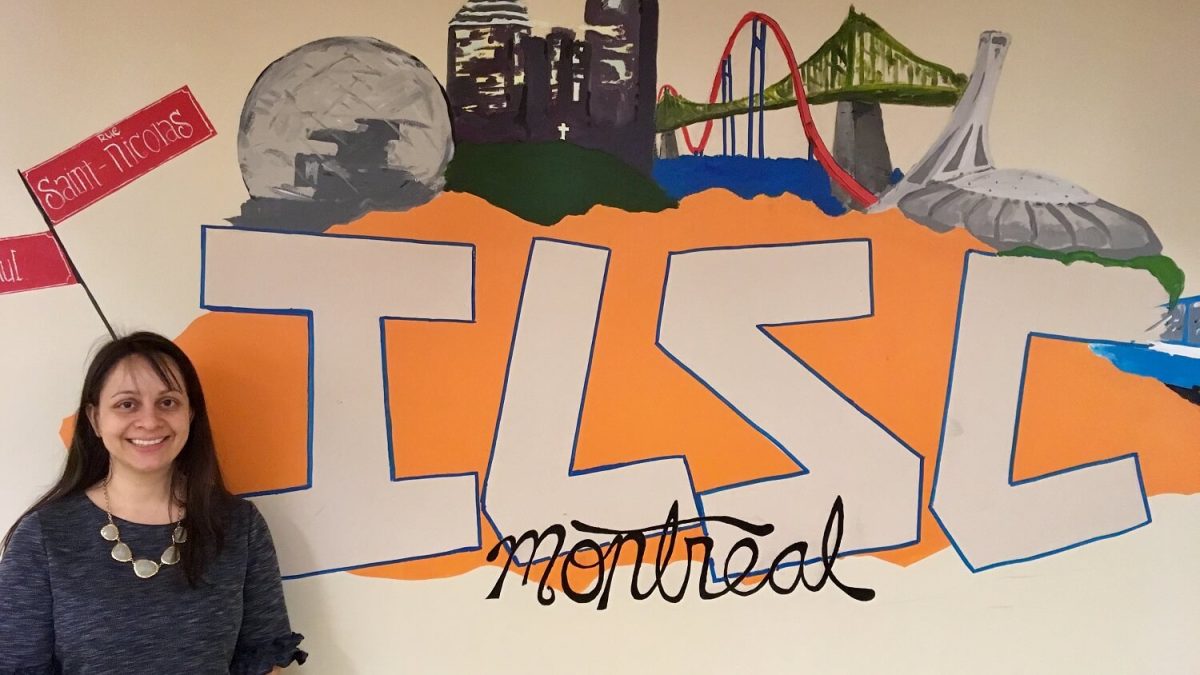Unsure about whether the CELTA is for you? Read about one of our 2023 graduate’s experience before, during, and after the course!
1. Before doing the CELTA, what was your educational or professional background?
Before doing the CELTA, I had a bachelors degree in International Development and Health and I was working in the development field. I had just come back from completing a contract in Uganda!
2. Why did you choose to do the CELTA?
In my last role I assisted the organisation in doing social entrepreneurship training to women in rural Uganda. I really enjoyed the facilitation and training component. I had also previously been a Teaching Assistant at university and I really enjoyed doing that. So I knew that teaching adults was the path I wanted to pursue. I also love travelling and meeting people from different cultures and diverse backgrounds. When I came back to Toronto I was recommended to do the CELTA course by someone who had previously taken it. They thought it would be what I’m looking for – and it was!
3. Did you do it online or in person?
Online – I was hesitant to do it online. However, in one of my roles I teach hybrid and sometimes fully remote. I was able to get used to the technology from the jump and the transition from teaching online to in person is not that hard!
4. What component of the CELTA course did you most enjoy and why?
There were many components of the CELTA program that I enjoyed. The one that I enjoyed most was getting feedback. It can be daunting for some people, but I’ve always been someone who looks for feedback. There’s also very few courses that teach you how to teach. The fact that the CELTA course was teaching us not only how to teach but also providing us with a real classroom and real time feedback really was wonderful. I could make mistakes and correct myself before going on to teach with different schools.
5. If it was an overall positive experience for you, what element contributed to that?
It was a very positive experience. For me it was the tutors that made it a wonderful experience. They provided a lot of feedback and were really supportive and kind throughout the course. Our cohort was also very small, so I felt like that contributed to having a lot of one-on-one attention and personal feedback from the tutors.
6. What thing did you find most challenging on the course?
The most challenging aspect of the CELTA in general is the amount of work it is and the intensity of it.
7. If you had to give ONE piece of advice to trainees about to start the course, what would it be?
It really is a great course to take and you learn a lot. But it is a very intensive course and you need to be prepared for that. You cannot be doing other things while taking the course. You should also take as much feedback as you can from your tutors and implement them into your lessons and do all the assignments. They really do help when you’re transitioning into teaching in a real classroom with no guidance. The tutors are there to make you better and get you to the end of the course successfully. You can make it a wonderful experience but you also also have to be ready to put in the effort and time to do so.
8. Have you used the CELTA since graduating?
Yes! The ESL industry has become my career at the moment. I’m looking to merge both this field and my field before CELTA in the future but for now I’m immersed in the industry. I did the course while being based in Toronto and I currently have just worked in the city. I got hired as a substitute ESL teacher shortly after completing my CELTA at ILSC Toronto. I also got hired as a summer teacher at Sprott Shaw Language College. I stayed with both through the year and I am currently a permanent teacher at ILSC Toronto and a permanent part-time instructor at Sprott Shaw. I am also a substitute teacher at EF Toronto and pick up shifts whenever I have availability in my schedule.
9. Can you talk about the transition from teaching on the course to teaching in the real world – what challenges did you face? What did you have to learn that isn’t covered in the course?
There were 2 main challenges I felt that I encountered when I finished my CELTA and started teaching. The CELTA teacher training classes are only 40 minutes. We learn to plan for 45 minute classes. However, when teaching, the classes are generally 80+ minutes. That was initially an adjustment for me to learn how to plan for longer classes. Also in the CELTA we learn to use specific frameworks and implement those into that week’s classes. However, in my job a lot of times you are merging frameworks, or using the frameworks loosely and a lot of times you are following a curriculum or materials that the school wants to use. The transition is a bit challenging and took some time to get used to. Lastly, in the CELTA we teach elementary and intermediate students general English – that’s usually the focus. In the ESL industry, it’s very common to be teaching general English with different levels including mixed levels, as well as other courses such as skill specific (including but not limited to listening, reading, writing, speaking, vocabulary, grammar), IELTS and English for Academic Purposes.
10. What skills or choices helped you get those jobs (irrespective of the CELTA qualification)?
You really need to be a go-getter. You will probably face a lot of rejection – there were so many positions that I haven’t heard back from or got rejected from – but you have to keep applying. Also focus on any other skills that you have. For example, if you have training or teaching experience previously, emphasise that. You don’t need to have any previous English teaching experience to get a job afterwards with the CELTA – I didn’t! Also highlight your skills of professionalism, punctuality, time management, communication, interpersonal … the soft skills that you have gained in previous experience. Lastly, network! Your trainers could have connections, so it’s always good to have an informational interview chat with them. Connect with other people in the industry and ask around when most companies hire. Also use the materials that they provide you for both job resources websites and interview guides. That’s something that helped me!
11. Any recommendations for celta graduates?
One thing I would say that really helped me was that I started looking for jobs while we were still doing the CELTA. I would say to be proactive and start to apply from mid-way of the CELTA course. Also, because I didn’t have any English teaching experience prior to the CELTA I searched up volunteer programs online. I found a volunteer-run school near my house that I got in touch with and started teaching classes (they were looking for teachers) towards the end of my CELTA. This way I was able to get in person teaching experience as well as experience teaching English.. I also signed up for an online volunteer program through an international NGO that helps people in war-torn areas learn English for different reasons. This merged both my development background and the CELTA course, which I loved. I am still involved with the organisation and the program today!
12. Tayba, you got a full job with benefits so soon after graduating. Can you talk about the steps, what suggestions you give to getting to where you have gotten to, and the experience of working with ILSC Toronto?
I got hired a month after I finished the CELTA course with ILSC Toronto. I actually connected with the academic manager through my CELTA trainer. During the spring/summer seasons, companies are generally hiring – because there are a lot of international students that come to learn English. I was hired as a substitute teacher. This is also very common in most companies. You would get hired as a substitute, summer or seasonal teacher. You have to be patient because it depends on the number of students on any class availability. In the summer you usually have a full schedule everyday because teachers are always on vacation, or sick and there are a lot of students – so they have to create more classes. But as the months go on, that’s not always the case and you could sometimes have 1 class only or be substituting. You have to be willing to be patient, go with the flow and accept the classes that you have. As well, you should be ready to accept any substitute classes that are offered to you. It shows that they are able to rely on you and that you want to work at the school. You should also be friendly, participate in activities, go to PD workshops, and even lead activities when you can. If you are patient and flexible and willing to put in the work, it would eventually lead to a permanent position. I love working at ILSC Toronto. First of all it is unionized so the classes don’t have more than 17 students! Also the technology in the classrooms is great and the teachers are amazing.They are very helpful and supportive and the overall environment is great. I have also made some good friendships from ILSC which I am grateful for.



